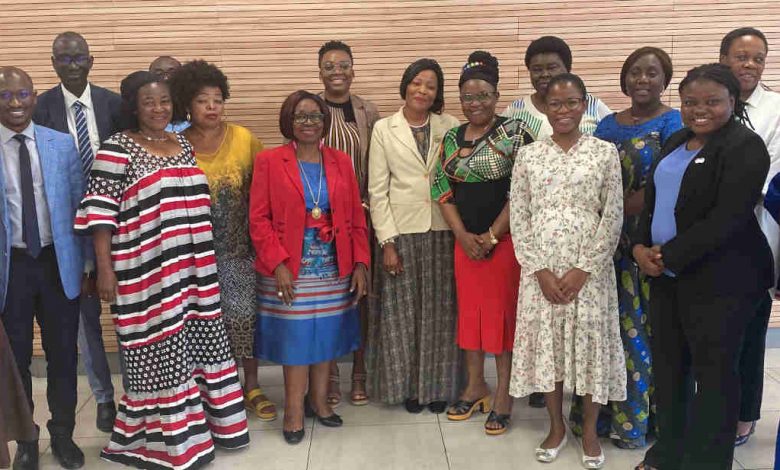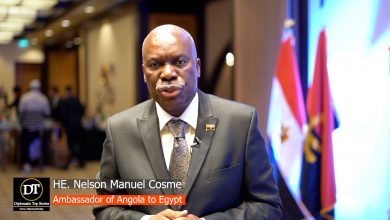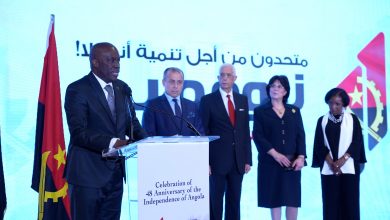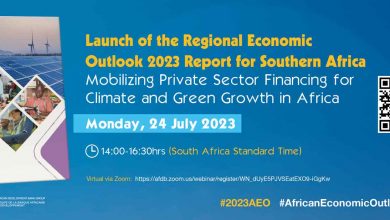Cameroon: African Development Bank enters into dialogue with Cameroonian financial institutions to strengthen women entrepreneurs’ access to finance | African Development Bank

Diplomat.Today
The African Development Bank
2022-11-11 00:00:00
——————————————-
The African Development Bank’s Director General for Central Africa, Serge N’Guessan, led a delegation for a series of talks with Cameroonian private sector stakeholders, including women entrepreneurs, between 24 and 30 September 2022 in Douala.
Professional associations and the financial institutions that work with them in the context of the Bank’s Affirmative Finance Action for Women in Africa initiative also participated. The aim was to establish a constructive dialogue between women entrepreneurs and financial institutions in Cameroon to catalyze the entrepreneurship of women in the country.
AFAWA, a flagship initiative of the African Development Bank, is working to strengthen access to finance for women entrepreneurs in Africa to bridge the $42 billion funding gap they face. The African Development Bank will mobilize up to $5 billion by 2025 to achieve this.
“It was a very good opportunity because these meetings allowed us to witness the obstacles that exist between the banks and us women entrepreneurs,” said Michèle Kepeden Lewat, General Manager of Business Trade Cameroon SARL. The trading company specializes in the distribution of personal protective equipment to industrialists and other workplace safety solutions, including gas detection and analysis, fire protection, lifting and handling, valves and fittings and actuators.
The delegation visited two AFAWA partners in Cameroon: PRO-PME Financement SA, a financial institution specializing in loans to small and medium-sized enterprises, and Ecobank, a pan-African bank.
“In addition to guarantees, which are a major constraint for women entrepreneurs, there is a problem with securing funds and keeping financial statements, which prevents financial institutions like ours from verifying the solvency of women entrepreneurs who approach us for a loan properly,” he said. Pierre Conrad Edzoa, CEO of PRO-PME Financement SA
For the Ecobank representative, Cameroon’s rise depends on women. The bank has launched a program called Ellevate, which helps female entrepreneurs transition from the informal to the formal economy by offering them specific loans depending on the type of business and the guaranteed terms.
“Before the guarantee, there are flexible pricing,” says Guy Martin Mbah, head of small and medium-sized enterprises and head of the network of branches at Ecobank Cameroon. He said that the regular loan is normally granted on an interest rate of 10%, but women entrepreneurs benefit from a bonus. For the application fee, which is usually 1% of the total loan amount, women pay only 0.5%.
A delegation from the African Development Bank holds talks with the heads of Cameroonian women’s associations in the buildings of the financial institution PRO-PME Financement SA
“We came to facilitate dialogue between women entrepreneurs and financial institutions. But we are very happy to see that this dialogue already exists, although it is still low-key,” says Charleine Mbuyi-Lusamba, Gender Officer at the African Development Bank . She added: “The discussions of the past few days have enabled us to embark on the path towards a flexible and frank dialogue, capable of creating real economic dynamism in Douala and in Cameroon.” She also announced that an AFAWA high-level mission, led by Esther Marieme Dassanou, the head of AFAWA, will soon visit Cameroon to reinforce ongoing initiatives.
“We sincerely thank AFAWA for its action effectively targeting our needs. We are going to organize more and equip female entrepreneurs so that they can handle the job that AFAWA will bring later,” said Alice Maguedjio, President of the Retailers Union of the Wouri- division, where the capital Douala is located.
In Cameroon, AFAWA is a partner of three financial institutions through the African Guarantee Fund.
——————————————-



